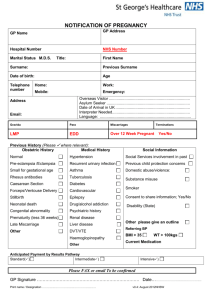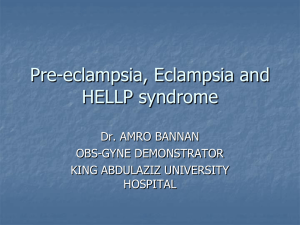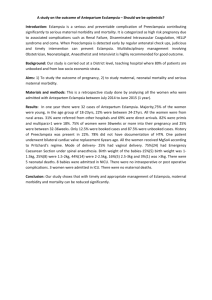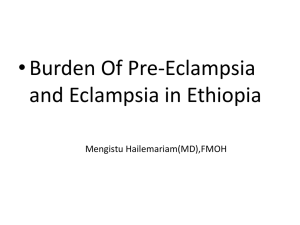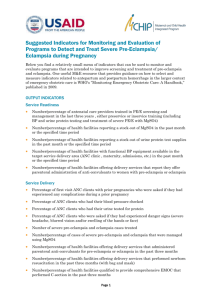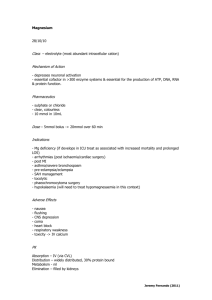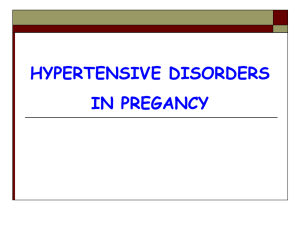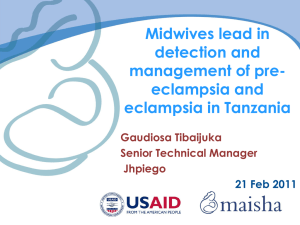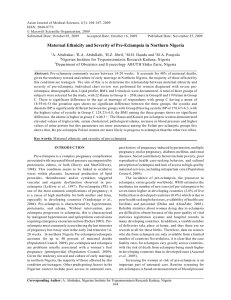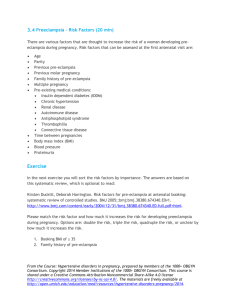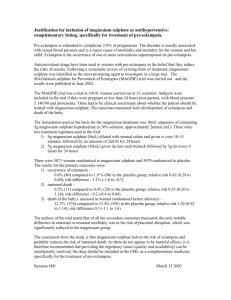Eclampsia - Babyloss
advertisement
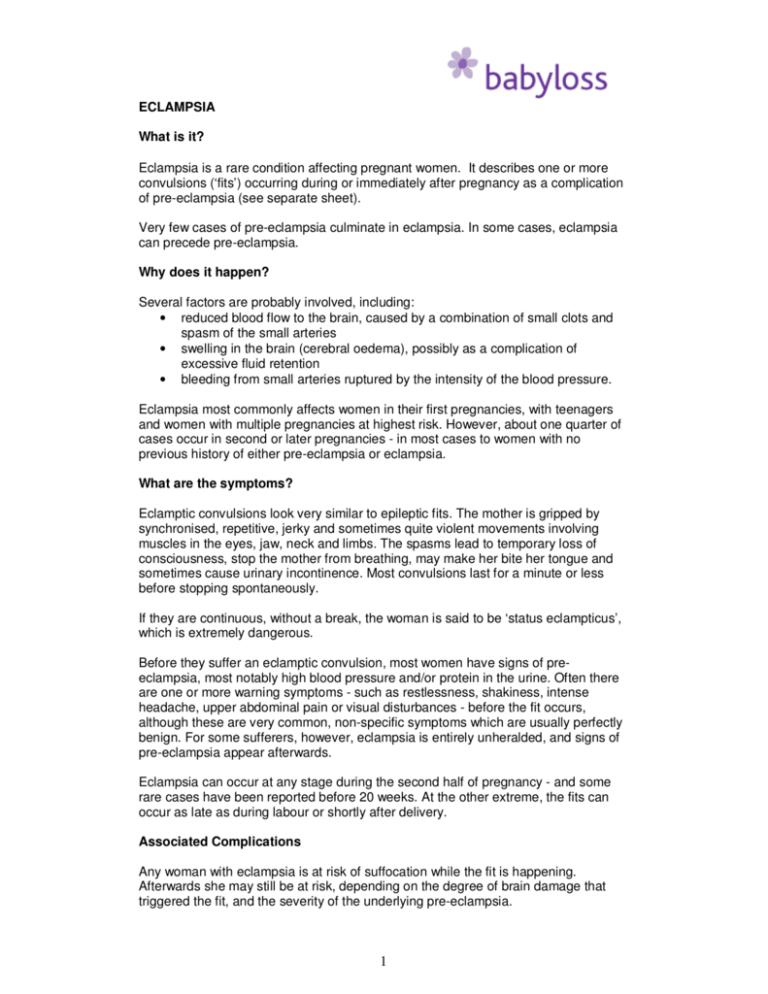
ECLAMPSIA What is it? Eclampsia is a rare condition affecting pregnant women. It describes one or more convulsions (‘fits’) occurring during or immediately after pregnancy as a complication of pre-eclampsia (see separate sheet). Very few cases of pre-eclampsia culminate in eclampsia. In some cases, eclampsia can precede pre-eclampsia. Why does it happen? Several factors are probably involved, including: • reduced blood flow to the brain, caused by a combination of small clots and spasm of the small arteries • swelling in the brain (cerebral oedema), possibly as a complication of excessive fluid retention • bleeding from small arteries ruptured by the intensity of the blood pressure. Eclampsia most commonly affects women in their first pregnancies, with teenagers and women with multiple pregnancies at highest risk. However, about one quarter of cases occur in second or later pregnancies - in most cases to women with no previous history of either pre-eclampsia or eclampsia. What are the symptoms? Eclamptic convulsions look very similar to epileptic fits. The mother is gripped by synchronised, repetitive, jerky and sometimes quite violent movements involving muscles in the eyes, jaw, neck and limbs. The spasms lead to temporary loss of consciousness, stop the mother from breathing, may make her bite her tongue and sometimes cause urinary incontinence. Most convulsions last for a minute or less before stopping spontaneously. If they are continuous, without a break, the woman is said to be ‘status eclampticus’, which is extremely dangerous. Before they suffer an eclamptic convulsion, most women have signs of preeclampsia, most notably high blood pressure and/or protein in the urine. Often there are one or more warning symptoms - such as restlessness, shakiness, intense headache, upper abdominal pain or visual disturbances - before the fit occurs, although these are very common, non-specific symptoms which are usually perfectly benign. For some sufferers, however, eclampsia is entirely unheralded, and signs of pre-eclampsia appear afterwards. Eclampsia can occur at any stage during the second half of pregnancy - and some rare cases have been reported before 20 weeks. At the other extreme, the fits can occur as late as during labour or shortly after delivery. Associated Complications Any woman with eclampsia is at risk of suffocation while the fit is happening. Afterwards she may still be at risk, depending on the degree of brain damage that triggered the fit, and the severity of the underlying pre-eclampsia. 1 Most women make a full recovery from eclampsia, but one in every 50 sufferers die and some are left with permanent disability. Unborn babies whose mothers are affected by eclampsia are at risk of acute asphyxia (suffocation). About one in every 14 of these babies die. It is now known that eclampsia occurring during pregnancy tends to be more severe for both mothers and babies than eclampsia occurring during labour or after delivery. Treatment Until recently it was assumed that conventional anticonvulsants were the best agents for controlling eclampsia and preventing further fits. A recent trial has demonstrated that magnesium sulphate can also help treat eclampsia. Medication is thought to work by improving blood flow to the mother’s brain. In theory eclampsia can be prevented by vigilant antenatal care, including a welltimed delivery. In practice, fits which occur without warning may be impossible to prevent. Future Pregnancy Because eclampsia is so rare its recurrence rate is not known. The risk appears to be higher for women who suffered eclampsia early in their pregnancy. For optimum safety, any woman who has suffered eclampsia in one pregnancy should be considered 'at-risk' in the next pregnancy and should consult their GP / midwife to devise an ante-natal care plan. Further Information: The Pre-Eclampsia Society (PETS) which provides information and support for women with pre-eclampsia and is run by women who have had the condition themselves. Helpline: 01286 882685 Website: www.pre-eclampsia-society.org.uk APEC (Action on Pre-EClampsia) which aims to inform and educate parents and health professionals about pre-eclampsia, to support sufferers and their families (through a network of local befrienders), and to promote medical research into the condition. Helpline: 020 8427 4217 Website: www.apec.org.uk This information sheet was written and edited in accordance with the Babyloss editorial policy. Last reviewed: July 2009 Please read the disclaim er at www.babyloss.com for the terms of use of the information provided here. 2
